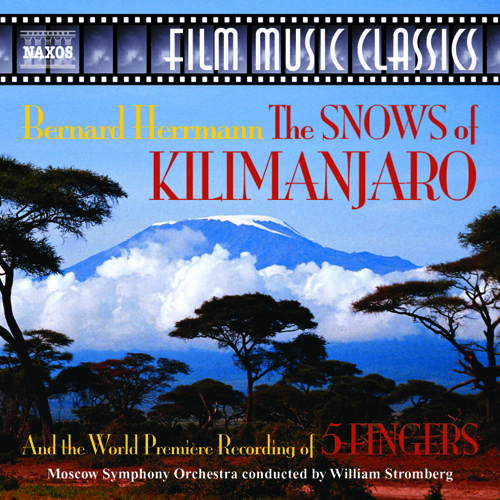HERRMANN: Snows of Kilimanjaro (The) / 5 Fingers
Tracklist
Morgan, John - Arranger
Stromberg, William (Conductor)
Stromberg, William (Conductor)
Stromberg, William (Conductor)
Stromberg, William (Conductor)
Stromberg, William (Conductor)
Stromberg, William (Conductor)
Stromberg, William (Conductor)
Stromberg, William (Conductor)
Stromberg, William (Conductor)
Stromberg, William (Conductor)
Stromberg, William (Conductor)
Stromberg, William (Conductor)
Stromberg, William (Conductor)
Stromberg, William (Conductor)
Stromberg, William (Conductor)
Stromberg, William (Conductor)
Stromberg, William (Conductor)
Stromberg, William (Conductor)
Stromberg, William (Conductor)
Stromberg, William (Conductor)
Stromberg, William (Conductor)
Stromberg, William (Conductor)
Stromberg, William (Conductor)
Stromberg, William (Conductor)
Stromberg, William (Conductor)
Stromberg, William (Conductor)
Stromberg, William (Conductor)
Stromberg, William (Conductor)
Stromberg, William (Conductor)
Stromberg, William (Conductor)
Stromberg, William (Conductor)
Stromberg, William (Conductor)
Stromberg, William (Conductor)
Stromberg, William (Conductor)
Stromberg, William (Conductor)
Stromberg, William (Conductor)
Stromberg, William (Conductor)
Stromberg, William (Conductor)
Stromberg, William (Conductor)

William Stromberg’s father worked in the film industry and introduced him at an early age to the music of composers such as Erich Korngold, Bernard Herrmann and Max Steiner. He soon developed a deep interest in the art and craft of composing for the cinema and in the vast legacy of film music written since the birth of the industry, and at the age of eighteen he moved to Hollywood, where he began to study with film composer John Morgan. A professional involvement with film soon followed, and Stromberg has scored the music for over a dozen feature films, including Trinity and Beyond and Edge of Honor. In addition to composing Stromberg began to conduct, and together with John Morgan he embarked on the reconstruction and recording of major, but often forgotten, film scores by masters of the genre such as Hugo Friedhofer, Alfred Newman and numerous others, which have been released on the Marco Polo label. Their success has resulted in Stromberg developing a twin career as firstly a conductor of sound-track recordings and secondly of symphony orchestras, mainly in Europe.
His discography is large. Among its highlights are the scores for the films The Adventures of Marco Polo and The Lodger (Hugo Friedhofer), The Adventures of Robin Hood (Erich Korngold), David Copperfield and The Roots of Heaven (Malcolm Arnold), The Egyptian (Bernard Herrmann-Alfred Newman), House of Frankenstein (Hans Salter-Paul Dessau), The Hunchback of Notre Dame and Beau Geste (Alfred Newman), King Kong ( Max Steiner), Mr Skeffington (Franz Waxman), Red River (Dimitri Tiomkin), and The Snows of Kilimanjaro and Five Fingers (Bernard Herrmann). In addition he has recorded light music by American composers such as Ferde Grofe and Meredith Willson. The work of Stromberg and Morgan has been a major influence in the re-evaluation of the quality of the music written during the ‘golden years’ of Hollywood.
© Naxos Rights International Ltd. — David Patmore (A–Z of Conductors, Naxos 8.558087–90).

Son of a Russian–Jewish immigrant and a pupil of Goldmark and of Percy Grainger, the American composer and conductor Bernard Herrmann made a significant contribution to music for the cinema. Other compositions include an opera, Wuthering Heights, a television version of Dickens’s A Christmas Carol, and a cantata based on Melville’s Moby Dick.
Film Music
Herrmann’s film scores include Citizen Kane, The Magnificent Ambersons, Vertigo, Psycho, The Snows of Kilimanjaro and Taxi Driver, among many more. His Concerto Macabre is taken from the score for the 1945 film Hangover Square.
































